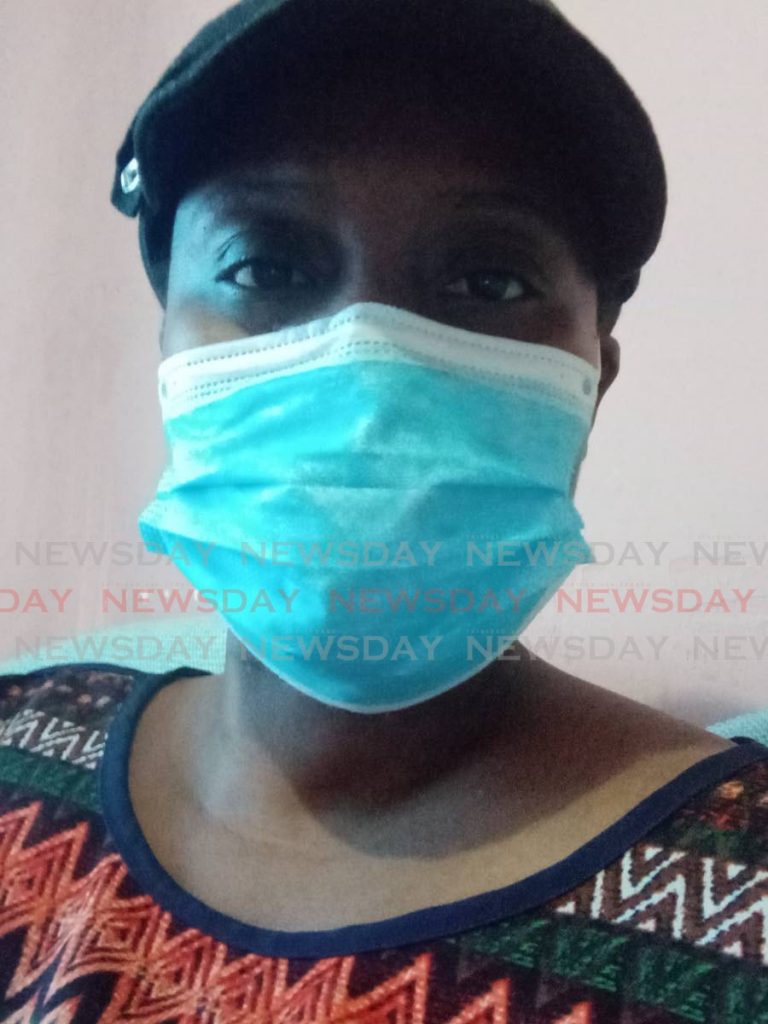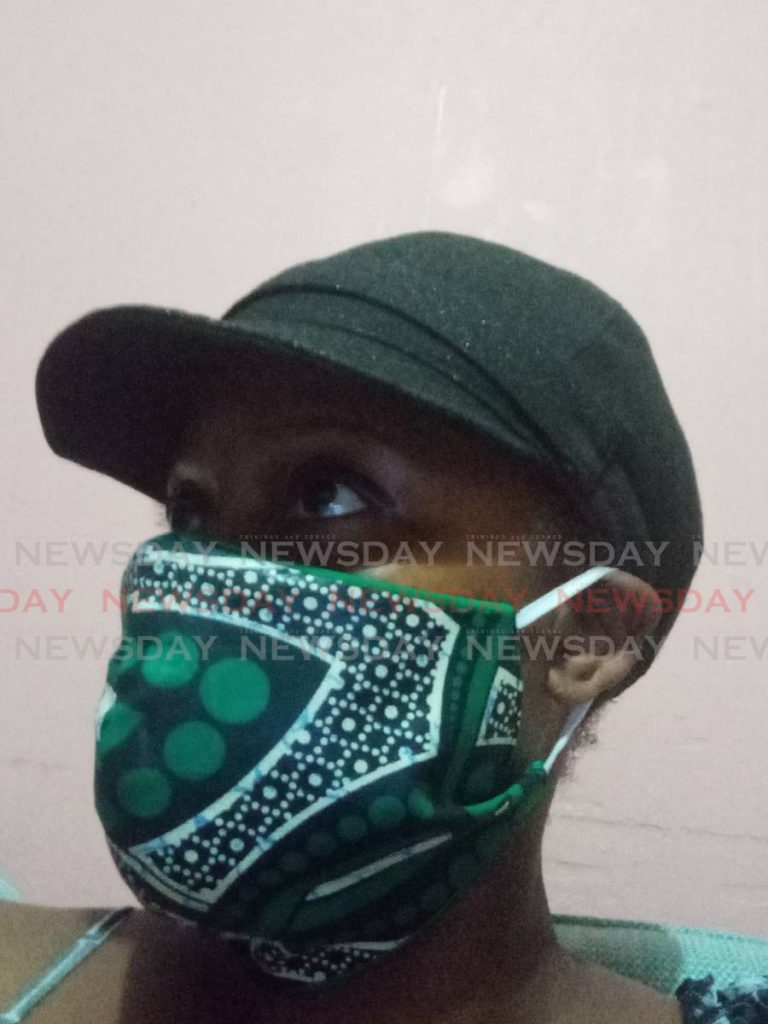At home and at risk too

FINDING out I am asthmatic didn't instil any fear or undue concerns then.
I was diagnosed early last year after an executive medical screening for the media, conducted by the North Central Regional Health Authority (NCRHA).
In fact, for me, it was an easier pill to swallow than having my fears of heart disease confirmed. I had chest pains, difficulty breathing and suffered horrible short breath even while speaking. I didn't have to exert myself for my breathing to become laboured.
Added to that, I have nodular thyroids, which simply put, means I have neither too much or too little iodine, but rather nodules that are gradually growing in my throat. Sore throat or being "hoarse" is now normal for me. It's often the reason for my prolonged "sexy phone voice."
On a more serious note, though, breathing and sometimes swallowing, is difficult.
At last year's medical screening, I received a pump to help with respiratory challenges. I also looked up on foods and fruits to alleviate respiratory issues.

-
I walked around with my pump, but hardly ever used it. I took the diagnosis casually. Something changed for me, however, while covering an event, last year. I had to be rushed to the on-site infirmary to be treated. I had forgotten my pump at home. I will never forget how that experience shifted my thoughts about asthma and respiratory illnesses.
Three puffs later, I was well enough to continue my assignment and the story was submitted, minus my health scare. I did not want others to know, unless it was absolutely necessary. I did not think it was important that anyone else knew.
Now I think differently.
Covid19 has, along with getting to understand the seriousness of my conditions, radically changed my thoughts and behaviour.
Cover your nose and mouth please
I am now at risk, in my own home, at the grocery store, at the pharmacy or anywhere else I have to traverse to get necessities, even as I religiously practise physical distancing.
I am an essential worker, as is another relative at my home. However, while I can work, mostly from home, my relative can't. I insisted that masks and gloves be worn.
My thoughts then were, what's stopping that virus from being brought into my home because a co-worker sneezed or coughed without a proper barrier on his/her nose or mouth?
I looked at a documentary on how far droplets can travel even when someone sneezed or coughed into their hands or elbow. Under special lighting, it showed that droplets flew as much as three to six feet away or further. That clip also recommended that the only proper way to stop droplets from hitting other people, was to cough or sneeze into a cloth.
To me, this spoke volumes. It reinforced my thoughts that we should have been proactive and worn masks from the time covid19 became a threat. If not to protect yourself, then to protect loved ones, friends, neighbours and by extension TT. I wondered why, then, no one else saw the dire need to have everyone wear masks.
I never went out without mine from the moment this virus hit TT. I looked and experimented with making my own masks at home, as I saw persistent disdain for government's demands for the public to practise proper social/physical distancing.
Rejected but extra cautious
I often wondered if I was being paranoid or extremely germophobic, but I was determined to exercise extra caution. For that, I was rejected by a Diego Martin maxi driver.
"Drive you going downtown Port of Spain?" I asked, my query muffled by the material.
"Yeah, but ah not picking up anyone wearing a mask," he shot back and drove off. I took a taxi instead and got a "cut eye" from the front-seat passenger.
A young lady jumped in the back seat next to me and struck up a conversation about masks. She said she has heart disease and respiratory issues, but find that the mask makes breathing difficult. I advised that she consider momentary discomfort, while protecting herself, rather than exposure to the virus that has killed hundreds of thousands, particularly people with underlying medical conditions.
"Just wash yuh hands, yuh hear. Dat's all yuh need to do. I does take off my clothes outside, put it to wash and use meh sanitiser and wash meh hands plenty. Yuh don't need no face mask," shouts the front-seat passenger, who had apparently been eavesdropping on our very discreet conversation.
People looked at me strangely when I walked out my community, at the bus shed and at the grocery. All except, those who themselves wore similar masks.
Another time, I got on a red band maxi in City Gate, Port of Spain, sat on the back seat next to a lady. She sat next to the window, which means she was blocked in by me and whomever was next to me.
"Oh gosh, ah forget something, ah have to come out," she said and looked visibly troubled.
I smiled sadly, knowing it was the mask that had scared her off to another maxi.
I refused to walk around with a sign that said I am "At Risk". To try to explain that the mask also offered me a mental block against touching my face, after touching the seat, money, door handles, grocery shelves and items, that could potentially all carry the dreaded covid19 virus.
Yet, while the debate continues about the benefit, safety or need to wear a mask, I took comfort when the government has finally advised that we all wear masks, even if home-made, cloth ones.
SIDEBAR:
Center for Disease Control (CDC) Recommendations
Cloth face coverings should:
٭ fit snugly but comfortably against the side of the face
٭ be secured with ties or ear loops
٭ include multiple layers of fabric
٭ allow for breathing without restriction
٭ be able to be laundered and machine dried without damage or change to shape
CDC recommends wearing cloth face coverings in public settings where other physical distancing measures are difficult to maintain (eg, grocery stores and pharmacies), especially in areas of significant community-based transmission.
CDC also advises the use of simple cloth face coverings to slow the spread of the virus and help people who may have the virus and do not know it from transmitting it to others. Cloth face coverings fashioned from household items or made at home from common materials at low cost can be used as an additional, voluntary public health measure.
Cloth face coverings should not be placed on young children under age two, anyone who has trouble breathing, or is unconscious, incapacitated or otherwise unable to remove the mask without assistance.
The cloth face coverings recommended are not surgical masks or N-95 respirators. Those are critical supplies that must continue to be reserved for healthcare workers and other medical first responders, as recommended by current CDC guidance.
Should cloth face coverings be washed or otherwise cleaned regularly? How regularly?
Yes. They should be routinely washed depending on the frequency of use.

Comments
"At home and at risk too"